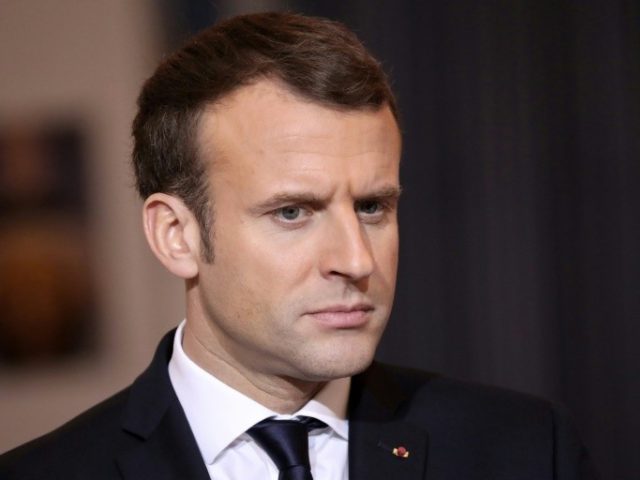French President Emmanuel Macron has suggested an extreme solution to the issue of “fake news” on social media platforms during elections — blocking entire websites.
Gizmodo reports that during a speech to journalists on Wednesday, French President Emmanuel Macron announced his plans to introduce new legislation that would seek to regulate “fake news” during election cycles. Macron’s plan had a number of elements designed to combat misinformation across social media including “an emergency legal action” that would allow the government to directly remove “fake news” from a website or block sites entirely.
Macron said during the speech, “If we want to protect liberal democracies, we must be strong and have clear rules.” He continued, “when fake news is spread, it will be possible to go to a judge … and if appropriate, have content taken down, user accounts deleted and ultimately websites blocked.” Macron did also include slightly less authoritarian measures of fighting fake news such as further transparency from social media platforms on ad investments, forcing tech companies to publicly reveal the identity of advertisers using their platforms and limiting how much can be spent on political ads during election campaigns.
Many social media platforms have already started taking steps in this direction. In October, Facebook began requiring further identifying information from political advertisers in order to determine exactly who was purchasing ads on their platform during election cycles. Similarly, Twitter announced in the same month that they would be publishing further information about ad campaigns purchased on their platforms including the identity of the ad purchaser and the amount spent on the campaign. Twitter also plans to allow users to see more detailed information about ads targeted at them and require that political ads be more blatantly labeled as political advertisements.
While some may argue that Macron’s legislation could crack down on the spread of misinformation during political campaigns, the precedent of blocking websites that publish information a government finds disagreeable is a dangerous one. Countries such as Communist China have enacted a website blocking system known as the “Great Firewall of China” that prevents Chinese citizens from accessing many websites outside of the country, including Facebook and Twitter. Most recently, the Iranian government has begun shutting down access to social media websites in an attempt to prevent protesters from coordinating events. The length that the French government will go to in order to control online political speech remains to be seen.
Lucas Nolan is a reporter for Breitbart News covering issues of free speech and online censorship. Follow him on Twitter @LucasNolan_ or email him at lnolan@breitbart.com

COMMENTS
Please let us know if you're having issues with commenting.